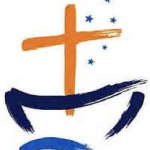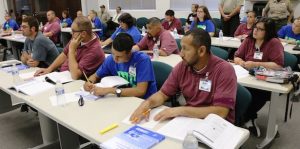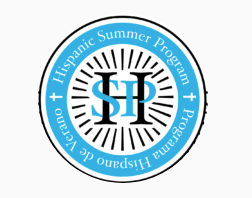Wesley is a full member institution in the Washington Theological Consortium, a group of seminaries and schools of theology in the greater Washington, D.C. area. The Consortium affords our students a rich array of opportunities through connection with other full member institutions. The Consortium offers its own Certifications in Ecumenism, Muslim-Christian Studies, and Ecology and Theology which can be pursued through taking courses at a variety of Consortium schools, including Wesley.

Why Study Ecumenism Today? (Dr. Larry Golemon)
Ecumenism is the witness to Church unity and the work toward its greater realization–through theological dialogue, liturgical renewal, and collaboration in ministry and public issues...{read more}
The Purposes of this Certificate are (a) to give students a deeper ecumenical knowledge; (b) to enable students to assume positions of ecumenical leadership in their local communities; and (c) to provide a foundation for the future study of ecumenism.
The certificate may be earned by any “ Master’s level or higher degree or certificate student” who enrolls in one of the member schools, on a full-time or part-time basis.

A joint program sponsored by GSISS, the Heritage Trust, and the Washington Theological Consortium.
The purposes of the Taha Al-Alwani Certificate in Muslim-Christian Studies are (a) to give students a deeper knowledge of Islam/Christianity; (b) to give students greater knowledge of dialogue and of reconciliation; (c) to enable students to assume positions of interfaith leadership in their local communities; (d) to provide a foundation for future study of relations between Christianity and Islam.
The Certificate Director holds the Al-Alwani chair in Muslim-Christian Studies at the Consortium. The Director is assisted by an Advisory Board, made up of one school dean, and Christian and Muslim scholars qualified in this field. The Director will survey courses in the schools each term, and select those qualified for the Certificate, with advice form the Advisory Board, and reporting regularly to the Deans.
The certificate may be earned by any “Master’s level or higher degree or certificate student” who enrolls in one of the member schools, on a full-time or part-time basis.

Mass Incarceration in the US has become a major concern for political, social and religious leaders throughout the country due in part to the large number of persons who are in prisons and otherwise under the supervision of the Criminal Justice System. While persons of every ethnic and racial background are caught in this expansive system of incarceration, the high percentages of African America and Latino inmates is particularly troubling.
The Certificate in Criminal Justice and Reconciliation in the Transformative Congregation will prepare men and women studying for leadership in the Church or those already in ministry to develop and lead programs that address the needs of returning inmates. {Learn more here}

A study option through the Washington Theological Consortium, an ecumenical and inter-faith team of theological schools including Gettysburg Seminary. The Certificate is 4 courses or a total of 12 credits. The certificate may be earned by any “Master’s level or higher degree or certificate student” who enrolls in one of the member schools, on a full-time or part-time basis.
Why study Theology and Ecology?
- Environmental problems challenge global society. Religious traditions have extensive influence among individuals, local communities and across borders. Pope Francis, Patriarch Bartholomew, the Lutheran World Federation and many other church leaders have called upon the church to care for God’s world and help prevent further damage.
- Theological Insight & Powerful Teaching emerge from critical re-consideration of past religious traditions and the search for effective ways to help the world overcome environmental problems. New depths of connection to God, one another and God’s community of earth beckon beyond and through the challenges at hand. {Learn more here}
Consortium opportunities and Cross Registration
The Consortium also offers special courses and seminars organized on an inter-seminary basis with cooperating faculty drawn from different institutions. These arrangements make dozens of additional, unique courses available to all theological students within the Consortium. Additionally, Wesley students have direct access to all Consortium member institution’s libraries, containing more than one million volumes in theology and related disciplines. More information about the Washington Theological Consortium may be found at their website, www.washtheocon.org.
Current students, learn more about Fall and Spring cross-registration here.

Wesley participates in the Appalachian Ministries Educational Resource Center (AMERC) consortium, providing students an opportunity for specialized preparation for ministry in the Appalachian churches and other missionary settings, with particular attention to small-town and rural congregations. AMERC currently makes grants to consortium member seminaries that sponsor and run travel seminars in Appalachian settings. These seminars are open to Wesley students.
Information on seminars can be obtained from the Wesley PMM Office or from the AMERC office, 300 Harrison Road, Berea, KY 40403 or its website: www.amerc.org.
Special Opportunities
Additional alternative non-institutional relationships allow Wesley students to enhance their studies while at Seminary.

During two weeks of every summer, Wesley co-sponsors a Hispanic Summer Program at a site in the continental United States or Puerto Rico. Hispanic students and others who are bilingual and interested in Hispanic ministries may attend this academic program and take a maximum of two courses for two credits each. Courses cover a wide range in the theological curriculum, and are taught with the Latino church in mind. M.Div. students who participated in this program may have the Consortium requirement waived. For more information about this program, contact the Office of the Dean.
